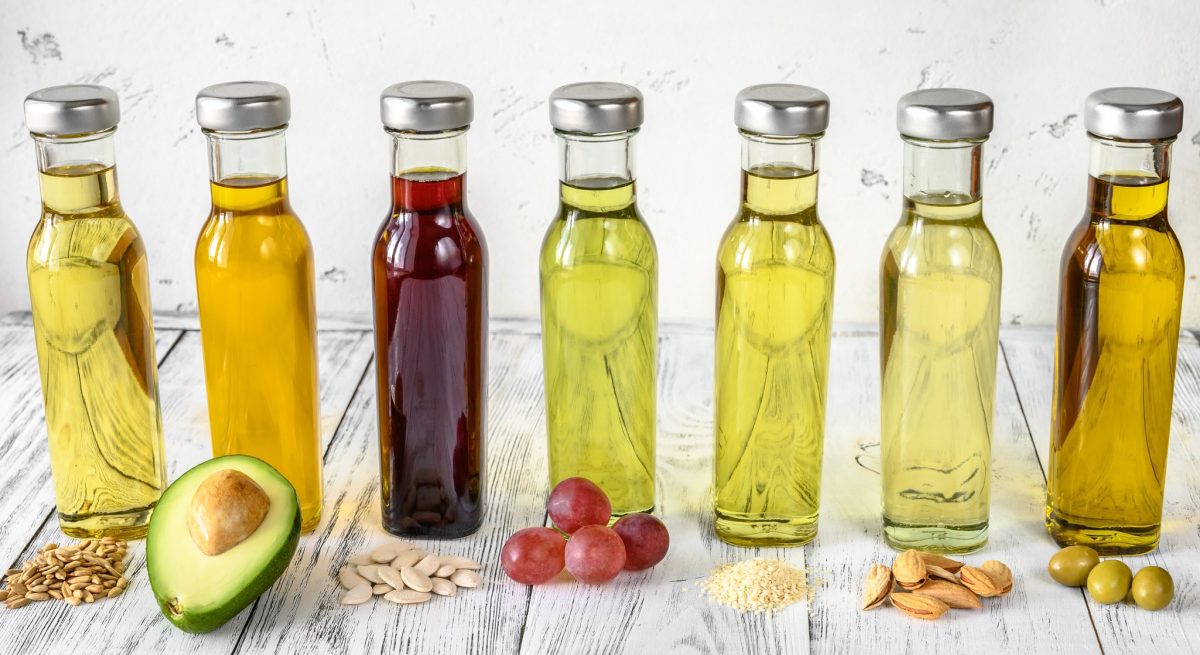2021 Trend: Alternative Culinary Oils
4 Min Read By Joli Bennett
Consumers are more interested than ever in the ingredients used at their favorite restaurants, and one of the restaurant industry trends predicted for 2021 is increasing customer interest in alternative culinary oils, both for their health benefits and the unique flavors that they impart to dishes. Using a variety of oils delights patrons with the experience of novel aromas and tastes and demonstrates that your chefs are interested in both the customer’s health and their dining pleasure. Some lesser-known oils with outstanding profiles as far as health properties and flavor are avocado oil, sesame oil, sunflower seed oil, pumpkin seed oil, walnut oil, and hemp seed oil. Let’s explore these options with a focus on health-related qualities and the best ways to incorporate them into your restaurant’s dishes.
When it comes to the nutritional profile of plant-based oils, there are a couple important features to keep in mind. One is whether the oil is composed of primarily saturated, monounsaturated, or polyunsaturated fats. Saturated fats may be animal-based (lard, for example) or plant-based (like coconut oil) and are generally solids at room temperature. Most culinary oils are primarily monounsaturated or polyunsaturated and are generally liquid at room temperature. Unsaturated fats are the healthier fats, and for heart health it’s an excellent idea to have more unsaturated fats in one’s diet than saturated.
Another health consideration is whether an oil contains more omega-6 fatty acids or omega-3 fatty acids. Both are essential fatty acids, meaning our bodies cannot synthesize them and we must obtain them from foods. Processed foods tend to contain a large quantity of omega-6 fatty acids, so it’s important to have enough omega-3s in our diets as well, to maintain a good ratio between the two. We don’t hear as much about omega-9s, but they’ve been found to have beneficial effects for heart health and increasing “good” cholesterol (HDL).
Every culinary oil has its own distinctive profile. They have a variety of smoke points, and some have particular needs when it comes to their storage. Some oils are perfect for low-heat cooking, some can take more heat, and some are best used in dips and dressings. In general, oils should be tightly closed in their containers and stored away from heat and light—and refrigeration is advised for a few. The key is to avoid oxidation and the resulting rancidity. Take good care of your oils, and they will take good care of you! Read on for details about some of the alternative culinary oils that are gaining in popularity, and let your imagination take over.
Avocado Oil
- Smoke point: virgin 325℉, refined 520℉
- High in monounsaturated fats
- High in omega-9 fatty acids
Avocado oil is a rising star, with notable health benefits as well as a very high smoke point for the refined oil, making it extremely versatile for all kinds of uses. It has a mild, pleasant flavor that makes it a go-to oil for just about anything you want to do in the kitchen. Preliminary research suggests numerous health benefits of avocado oil, including improving the health of the heart, eyes, and skin. Avocado oil can be used for sautéing, frying, baking, and grilling, as well as in dressings, dips, pesto, and smoothies.
Sesame Oil
- Smoke Point: unrefined 350℉, semi-refined 450℉
- High in polyunsaturated fats
- High in omega-6 and omega-9 fatty acids
Sesame oil is another valuable oil to have in the kitchen, with a number of significant health benefits and a relatively high smoke point for the untoasted version. Plain sesame oil is pale in color, has a neutral flavor, a high smoke point, and is suitable for all types of cooking; toasted sesame oil has a dark color, a distinctive strong nutty aroma and taste, and a lower smoke point, so is best for finishing dishes to add flavor. A number of traditions rely on sesame oil, including Chinese, Japanese, and South Indian cuisines. Sesame oil has an impressive array of health benefits, including improving heart health, helping to lower blood sugar, and antioxidant and anti-inflammatory properties.
Sunflower Seed Oil
- Smoke Point: refined 450℉
- High in monounsaturated & polyunsaturated fats
- High in omega-6 fatty acids
Sunflower seed oil, also just called sunflower oil, is well-liked for frying and higher-heat cooking due to its relatively high smoke point. Its flavor is described as neutral, so it’s a good choice when you don’t want the cooking oil to overpower other flavors in the recipe. Sunflower oil is rich in vitamin E, with one tablespoon containing 5.6 mg of Vitamin E, or 37% of the Daily Value.
Pumpkin Seed Oil
- Smoke point: 250℉
- High in polyunsaturated fats
- High in omega-6 & omega-3 fatty acids
- Refrigeration recommended
Pumpkin seed oil has traditionally been popular in Central Europe, where it is considered a delicacy, and it is now becoming more widely appreciated in the U.S. There is some research showing that pumpkin seed oil, taken as a supplement, may have numerous health benefits. As a culinary oil, pumpkin seed oil is usually used as a finishing oil, for drizzling on vegetables, pastas, soups, salads, and even on desserts. It has an intensely nutty flavor.
Walnut Oil
- Smoke Point: 320℉
- High in polyunsaturated fats
- High in omega-6 & omega-3 fatty acids
- Refrigeration recommended
Walnut oil is popular for its delicate nutty flavor, and because of its low smoke point, is usually used for dressings and as a drizzling oil for vegetables and meats. Walnut oil needs special care and does not last as long as other oils, so be sure to use it up quickly while it is fresh.
Hemp Seed Oil
- Smoke point: 332℉
- High in omega-6 & omega-3 fatty acids
- High in polyunsaturated fats
- Refrigeration recommended
Hemp seed oil comes from the seeds of the Cannabis sativa plant. It is important to distinguish it from CBD oil, which comes from the stalks, leaves, and flowers of the same plant. Hemp seeds—and hemp seed oil—do not contain CBD, but they do contain healthful nutrients, particularly B vitamins and vitamin D. Hempseed oil has no psychoactive effect and contains no THC whatsoever. With its rich, nutty flavor and dark green color, it’s an oil you’ll want to feature as a drizzling oil or in smoothies, sauces, pesto, guacamole, and other dressings and dips. Because of its relatively low smoke point, it’s not ideal for cooking.
Customer focus on health has never been greater, and is sure to continue into 2021 and beyond, so it pays to be savvy about healthful ingredients that patrons are interested in—plus, your diners will appreciate being introduced to some new flavors in the new year.


